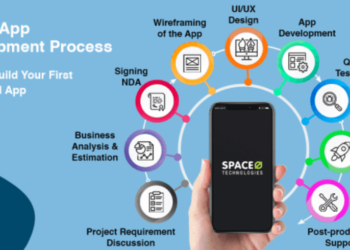In the digital age, data has become one of the most valuable assets for businesses, and startups are no exception. In fact, startups can gain a significant competitive advantage by harnessing the power of data analytics. With the right tools, startups can collect, analyze, and derive actionable insights from their data, leading to informed decision-making and accelerated growth. In this blog post, we will explore a range of data analytics tools that are well-suited for startups.
Why Data Analytics Matters for Startups
Before we dive into the tools, let’s briefly discuss why data analytics is crucial for startups:
- Informed Decision-Making: Data-driven insights enable startups to make informed decisions, optimizing their operations and strategies.
- Competitive Edge: Leveraging data can help startups identify market trends, customer preferences, and opportunities to outperform competitors.
- Efficiency: By automating data collection and analysis, startups can streamline processes, reduce manual work, and save valuable time and resources.
- Scalability: Scalable data analytics tools can grow with your startup, accommodating increasing data volumes and complexity.
Now, let’s explore some of the top data analytics tools suitable for startups.
1. Google Analytics
Google Analytics
Google Analytics is a powerful, free web analytics tool that provides valuable insights into website traffic, user behavior, and conversion rates. It’s an excellent choice for startups looking to understand their online audience and website performance.
2. Mixpanel
Mixpanel
Mixpanel is a user analytics platform that focuses on tracking user interactions within web and mobile applications. Startups can use Mixpanel to gain deep insights into user engagement, retention, and conversion funnels.
3. Tableau Public
Tableau Public
Tableau Public is a data visualization tool that allows startups to create interactive and shareable data dashboards. While the public version is free, Tableau offers paid versions with more advanced features.
4. Kissmetrics
Kissmetrics
Kissmetrics is a customer engagement and retention platform that helps startups analyze customer behavior across various touchpoints. It provides insights to improve user onboarding and optimize marketing campaigns.
5. Amplitude
Amplitude
Amplitude is a product analytics platform designed to help startups understand how users interact with their products or apps. It offers user behavior tracking, retention analysis, and cohort analysis.
6. Power BI
Power BI
Power BI is a business intelligence tool by Microsoft. It enables startups to connect to various data sources, create interactive reports, and share insights across the organization.
7. Heap Analytics
Heap Analytics
Heap Analytics offers automatic event tracking, allowing startups to capture every user interaction on their website or app. It’s a user-friendly tool for understanding user journeys and behavior.
8. Looker
Looker
Looker is a data exploration and business intelligence platform that helps startups visualize and explore their data. It offers a centralized platform for data analytics and reporting.
9. Apache Spark
Apache Spark
Apache Spark is an open-source, distributed computing framework that can handle large-scale data processing and analytics. It’s ideal for startups dealing with big data and complex analytics tasks.
10. Google Data Studio
Google Data Studio
Google Data Studio is a free data visualization and reporting tool. It integrates with various data sources, allowing startups to create interactive and customizable reports and dashboards.
Conclusion
Data analytics is no longer a luxury but a necessity for startups looking to thrive in a competitive landscape. The tools mentioned above offer a range of options to suit different needs and budgets. Whether you’re tracking website traffic, user behavior, or product performance, these data analytics tools can empower your startup with valuable insights that drive growth and success. As you embark on your data analytics journey, remember that the key to effective data analysis lies not only in the tools you choose but also in how you interpret and apply the insights gained to make informed decisions.










